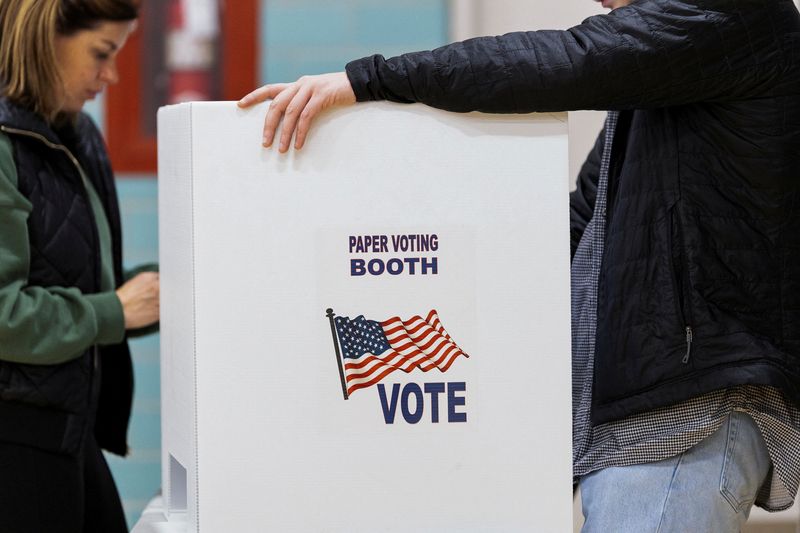By Joseph Ax
(Reuters) - After a victory on Tuesday in Ohio, where voters enshrined abortion rights into the state constitution, abortion access advocates are turning their attention to 2024.
Already, reproductive rights groups have been gathering hundreds of thousands of signatures in swing states such as Arizona, Florida and Nevada to place similar referendums on the ballot in November 2024, when the presidential contest will headline national elections.
Ohio, a conservative state that backed Republican Donald Trump in both 2016 and 2020, was the seventh state to vote in favor of abortion access since the U.S. Supreme Court last year eliminated a nationwide right to abortion. The victories for abortion rights campaigners pose a dilemma for Republicans.
"Ohio is not a fluke," said Ryan Stitzlein, the vice president of political and government relations for the national group Reproductive Freedom for All. "Ohio is just one more example of how much voters care about this issue."
Anti-abortion groups have sounded the alarm. In a memo on Wednesday, Susan B. Anthony Pro-Life America blamed the Ohio defeat on a huge spending disparity between the two sides and urged anti-abortion advocates and Republicans to redouble their fundraising efforts ahead of 2024.
Here are some of the states expected to become abortion flashpoints in 2024:
ARIZONA
Arizona for Abortion Access, a coalition of reproductive rights groups, began collecting signatures in September for a ballot measure to amend the state constitution to protect abortion rights up to fetal viability, generally considered 23 or 24 weeks.
State law requires more than 380,000 valid signatures from registered voters by July. The campaign is aiming to collect twice as many, said Chris Love, an attorney and senior adviser to the coalition.
Abortions are banned after 15 weeks of pregnancy in Arizona.
The groups kept a close eye on the Ohio contest, which drew tens of millions of dollars from national groups on both sides.
"It gives us a window into what the opposition will look like in Arizona," Love said.
Arizona is expected once again to be a presidential battleground, and it is also likely to see one of the country's most competitive U.S. Senate races.
FLORIDA
A coalition of Florida abortion rights groups, Floridians Protecting Freedom, also is gathering petitions for a constitutional amendment to protect abortions until fetal viability.
A ballot measure requires more than 890,000 signatures by early next year. The campaign has already collected close to half a million validated signatures, with hundreds of thousands more awaiting review from election officials, according to Amy Weintraub, the reproductive rights program director at Progress Florida, one of the coalition partners.
Several obstacles remain, however. Constitutional amendments in Florida must pass with at least 60% of the vote, a higher threshold of support than any statewide abortion measure has yet received. The ballot language must also be approved by the state's conservative Supreme Court.
Currently, abortions are banned after 15 weeks in Florida.
Governor Ron DeSantis, who is running for the Republican presidential nomination, signed a far stricter six-week limit earlier this year. That law only takes effect if the state Supreme Court upholds the earlier 15-week ban, which is the subject of a pending legal challenge.
OTHER STATES
In Nevada, abortion rights groups are collecting signatures for a constitutional amendment to protect abortion. State law already offers similar protections, but a constitutional amendment would make it harder to roll them back in the future.
Nevada has been a closely contested state in recent presidential races and will also play host to a competitive U.S. Senate election.
In Colorado, where abortion is legal, opposing ballot initiatives - one guaranteeing abortion rights and another banning them - have been proposed for next year. Similarly, groups on both sides have pushed ballot measures in Missouri, where abortion is banned.

Abortion rights supporters have also advanced ballot measures in South Dakota, where abortion is banned, and in Nebraska, which restricts abortions past 12 weeks of pregnancy.
Democratic lawmakers in New York and Maryland, where abortion is legal, have approved 2024 ballot measures to ensure abortion access.